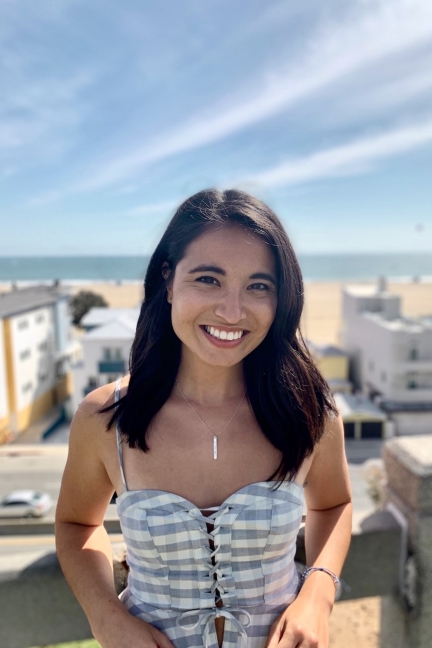Eternal Shenanigans: A Guest Post by Olivie Blake
From The Atlas Six trilogy to Alone with You in the Ether, Olivie Blake continuously charms us with her unique worlds of complex characters and paranormal plots. Blake has penned an exclusive essay on the inspiration behind Our Monthly Pick title, Masters of Death, and explains why she holds the supernatural near and dear, down below.
Masters of Death
Masters of Death
By Olivie Blake
In Stock Online
Paperback
$17.99
$19.99
A vampire realtor + the godson of Death + a haunted mansion = our favorite new paranormal fantasy.
A vampire realtor + the godson of Death + a haunted mansion = our favorite new paranormal fantasy.
At first, publishing didn’t want Masters of Death—a tedious refrain if you’re familiar with my unconventional path to publication, but particularly true for Masters of Death, which initially suffered from industry-wide fatigue when it came to vampires, romances involving vampires, and everything else going on this book, which also includes angels (auditors), reapers (foot soldiers), demons (assholes), Chicago real estate (starring as itself), and, of course, the turgid sex appeal of bureaucracy (the municipal restructuring of the afterlife). All very tiresome to the industry at the time, true, but what appealed to me about exploring immortality was the possibility that mortal yearning—with its pitifully finite constraints—could be rendered even MORE intense, with the humanness of boredom all the more defining.
Take, for example, the origin story of Viola Marek, one of Masters of Death’s main characters who is “turned,” to borrow some Western terminology, into an aswang, a Filipino shape-shifting creature that can be summarized, for purposes of shorthand, as a vampire. The Western vampire aesthetic is rich and well-explored, but a fun fact about aswangs (aside from being a tool of American colonialism, perhaps the funnest fact?) is that there are alleged benefits to living near them. My ninang, or godmother, specifically emphasized to me growing up that while aswangs commonly infiltrated villages, they never fed on their neighbors—almost as if they had a sense of ownership when it came to their communities. And yet, because of their natures, they themselves could not really belong.
How sad, I thought. You know, like an empath.
Of course, I am merely the daughter of a Filipina immigrant, Northern California born and bred myself, so I don’t share the fear of aswangs I might otherwise possess (my mom, unlike my ninang, finds them very scary). Actually, I always observed my immigrant family to have a very pragmatic relationship to the paranormal. My grandmother’s house, where multiple generations of my family lived prior to gaining their American citizenship, had a poltergeist that everyone seemed to generally get along with but occasionally needed to reprimand for purposes of domestic hierarchy (no different from coexistence with my dog). This attitude, I think, is one that defines my relationship to the supernatural—I accept that it is no less real than I am. I’m not here to disturb it. We coexist and go about our business peaceably, and if anything ever gets hungry, well, so do I. And I get lonely, too. And the housing market depresses me. So why might the same not be true for an aswang, who—bloodletting notwithstanding—only wants food on the table and a place to call home?
The truth is, immortal or not, middle management can often be incompetent. Regardless of your lifespan, winter in Chicago can really suck. Yes, eternity means eternal shenanigans, but can anyone really be expected to thrive under conditions of capitalism, vampires included? Yes, there are multiple contract negotiations on the page in Masters of Death, and yes, many of my immortals are in fact so bored they participate in an illegal gambling ring with incidentally apocalyptic consequences—but in the end, this is just another episode of a timeless story. The one about what it means to be human.
And what could be more human than to long, however gruesomely, to belong?

